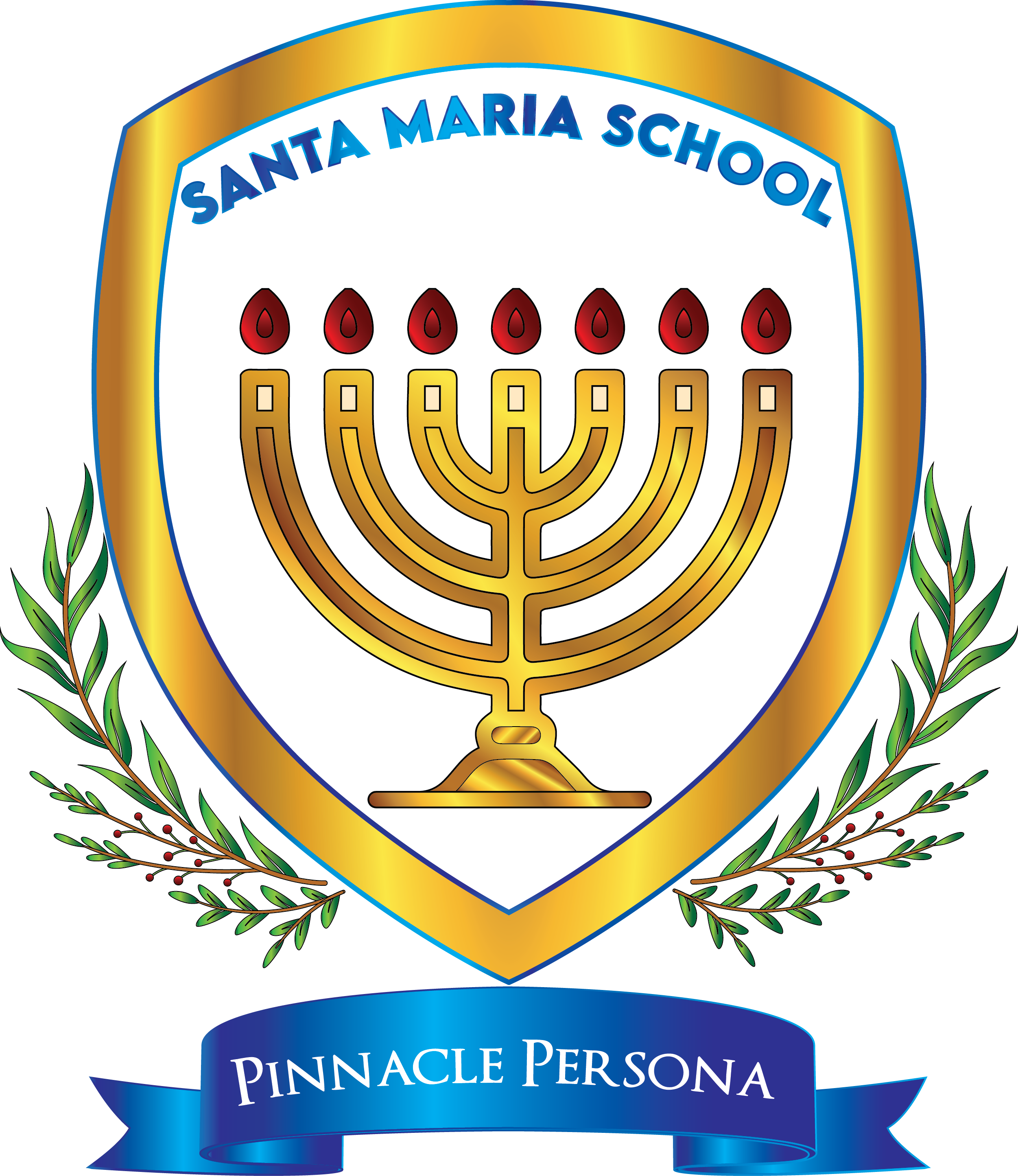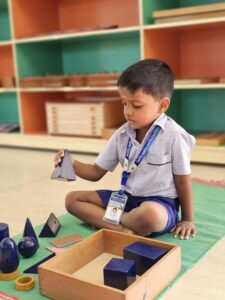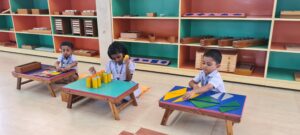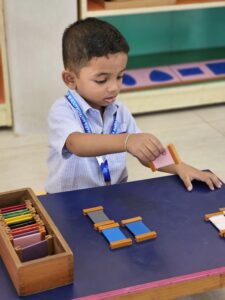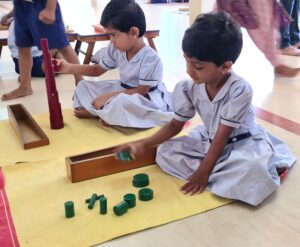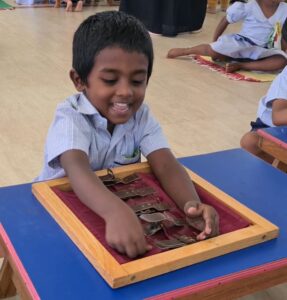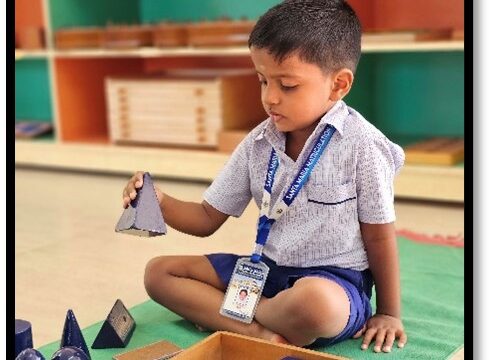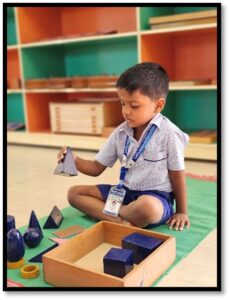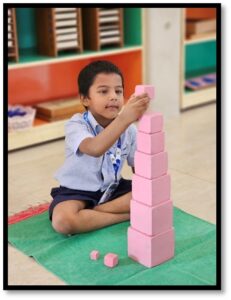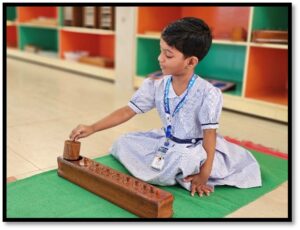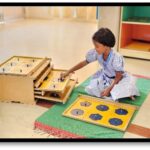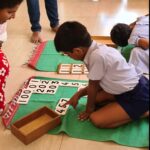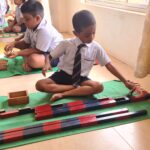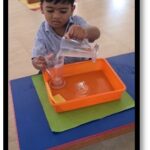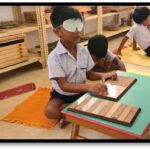- Discover Montessori Education:
- Admission Eligibility:
- Montessori Environment:
- Empowering Independent Learning:
- Montessori Apparatus:
- The Montessori Teacher′s Role:
- Exercises of Practical Life:
Unlike traditional methods that rely on memory alone, the Montessori Method, crafted by Dr. Maria Montessori, prioritizes the development of ‘Intellectual Capabilities’ alongside memory power. In Montessori education, knowledge isn’t just retained for one class; it’s cultivated for a lifetime.”
To benefit fully from our Montessori education method, we recommend enrolling your child in Pre-Primary 1 at the age of 2.5 years.
- For Pre Primary 1, age as on 1st June 2 ½ years completed. Ability to express basic needs is essential.
- For Pre Primary 2, age as on 1st June 3 ½ completed.
- For Pre Primary 3, age as on 1st June 4 ½ completed.
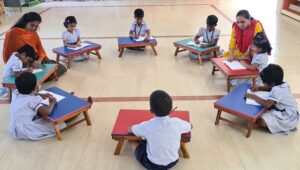 While traditional schools often follow a model where teachers lead the entire class, offering instructions and expecting uniform progress, our Montessori Environment is uniquely prepared.
While traditional schools often follow a model where teachers lead the entire class, offering instructions and expecting uniform progress, our Montessori Environment is uniquely prepared.
Here, students assume control of their learning journey. They independently choose practical learning activities, tackle challenges at their own pace, and receive guidance from our specially trained teachers.
Renowned educator Dr. Maria Montessori dedicated years to refining a diverse array of Montessori materials through meticulous observation and experimentation. At Santa Maria School, we take pride in our comprehensive Montessori program, showcasing over 100 materials, spanning Sensorial, Language, and Arithmetic resources.
Our precision-crafted Montessori materials, both visually appealing, thoughtfully organized and presented in accessible manner empower students with the freedom to choose and engage in self-directed learning. These tools serve as keys to a lifelong and meaningful education.
A notable feature is the built-in ‘control of error,’ enabling children to objectively assess their performance and learn from mistakes, fostering a guilt-free and shame-free learning environment.
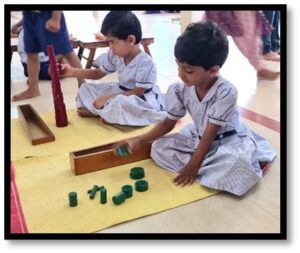
Aligned with the child’s developmental stages from birth to adulthood, Montessori education seamlessly adapts to evolving characteristics and interests at each phase.
In Montessori, the teacher’s role evolves from active guidance with younger students to that of an observer, gradually reducing intervention as the child grows. Teachers cultivate a serene, organized, and joyful classroom environment, providing help and encouragement to foster self-confidence and inner discipline. Skilful observation, coupled with the ability to gauge when and how much to intervene, are crucial talents of a Montessori teacher.
Our curriculum integrates practical life exercises to instil social customs and manners, enhancing muscular coordination. Sensorial materials further empower children to develop cognitive skills by engaging their senses in exploring and classifying the world through touching, seeing, smelling, tasting, and listening exercises.
